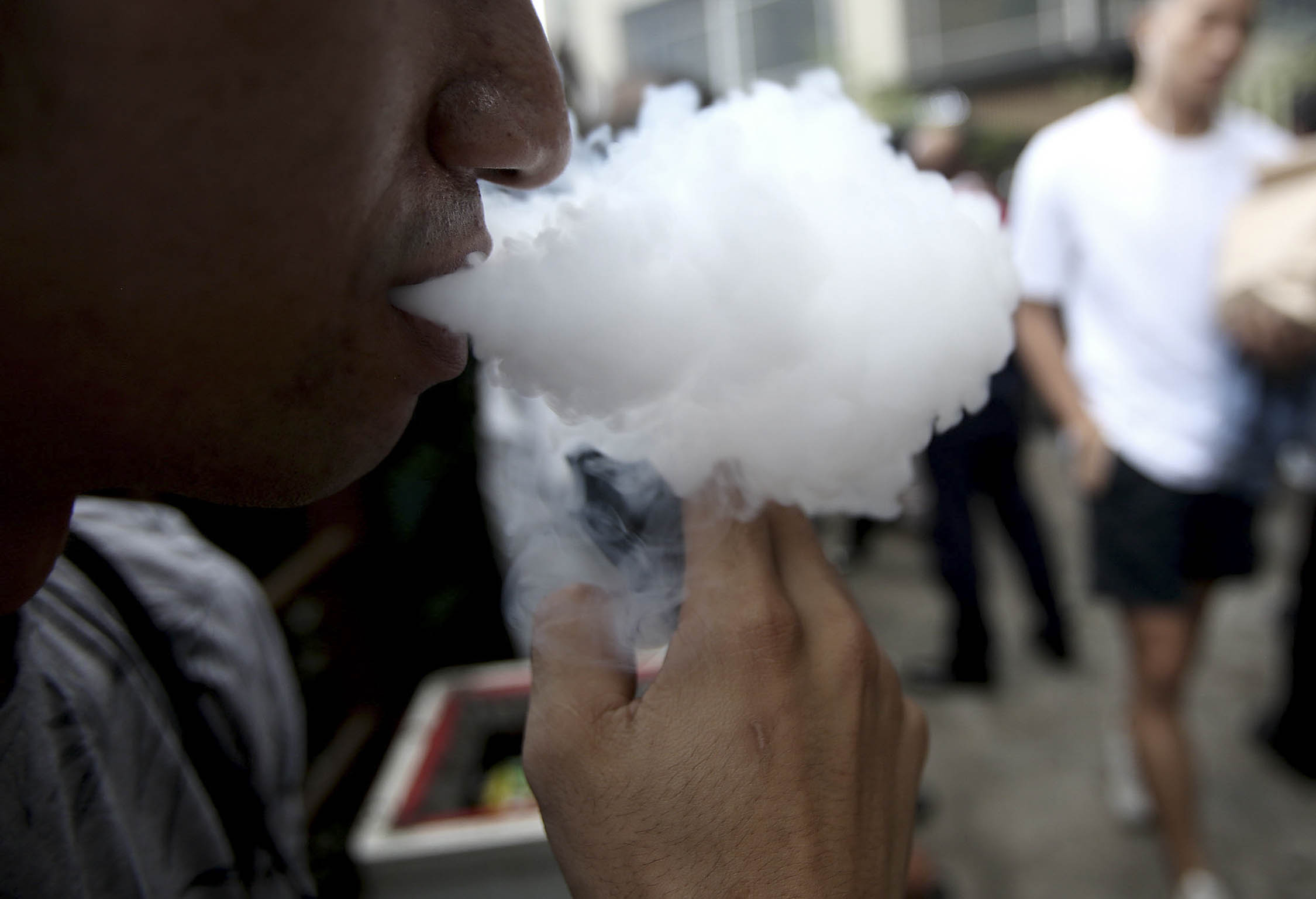DOH: Vaping puts young Filipinos at risk

FILE PHOTO: A man uses a vape in a smoking area in Makati City. INQUIRER FILE PHOTO / RICHARD A. REYES
The Department of Health (DOH) has strongly opposed the proposed Vaporized Nicotine Products Regulation Act, which was recently passed by the Senate and earlier approved by the House of Representatives, saying it is a “blatant disregard to public health” and puts the Filipino youth at risk as the bill seeks to expand access to “vape” products.
“The bill is retrogressive and contains several provisions that contradict public health goals and international standards. It also undermines the country’s progress in tobacco and control,” the DOH said in a statement.
The DOH explained that there were various laws that have protected Filipinos from the harms of vapor products and heated tobacco products and these stood to be watered down due to Senate Bill No. 2239.
These include Republic Act Nos. 11346 and 11467, which mandated the regulation of these products by the Food and Drug Administration, imposition of taxes, prohibition of access to persons below 21 years old, application of graphic health warnings in compliance with RA 10643, or the Graphic Health Warnings Law and prohibition of flavors other than plain tobacco or plain menthol.
At least 43 medical societies, including the Philippine Medical Association, the main organization of all physicians in the country, have also urged President Duterte to veto entirely SB 2239.
Article continues after this advertisement“By lowering the age of access to vapor products from 21 to 18 years old, allowing flavorings, and permitting advertising and sponsorship strategies, the bill, when passed into law, will expose our youth to harmful and addictive substances by making vapor products enticing and easily accessible,” the DOH stressed.
Article continues after this advertisementAddictive, toxic
The health agency maintained that vape products were harmful and not risk-free and should be regulated as health products due to their toxic substances and effects.
It noted that vape liquids and its emission contain chemicals such as nicotine, propylene glycol, carbonyls and carbon monoxide that are either addictive, toxic or can cause cancer.
The DOH also cited studies that have shown vape use increased the risk of using other known addictive substances such as cigarettes, alcohol and even marijuana.
“There is also growing evidence of the harmful effects of using vapes both to the user and those exposed to its emissions, including its potential to cause cardiovascular diseases, respiratory problems and explosion injuries,” it added.
The approval of SB 2239 puts the Filipino youth at risk, the DOH said as it cited the Global Youth Tobacco Survey, which showed that the prevalence of using electronic cigarettes was increasing among the Filipino youth.
“Data shows that there is a 110 percent increase in vape use in just four years, from 11.7 percent in 2015 to 24.6 percent in 2019. A recent study conducted by the Philippine Pediatric Society and the Department of Education also shows that the age of initiation of using electronic cigarettes starts at 10 to 15 years old,” the DOH said.